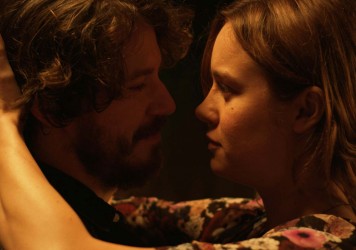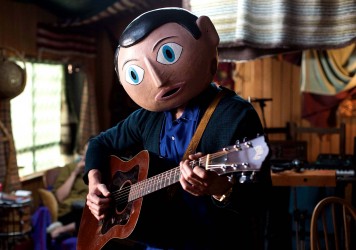Brie Larson shines in this deceptively life-affirming drama about a young mother forced to raise her son in isolation.
If a movie depicts a woman and her toddler son held captive in a small, cramped room by a repugnant male sex pervert, it’s only natural to expect some kind of retribution take place. In so often fulfilling that desire, cinema promotes a creed of cyclical violence. What’s good for the goose is good for the gander.
But it’s okay, because when the bad dude gets his inevitable comeuppance, objective justice has been served and we can skip from the cinema, punching the air and perhaps even believing that real life offers such natural fixes. Lenny Abrahamson’s Room follows this convention, but in a sensitive and clever way, one which doesn’t allow the viewer to vicariously enjoy the pain being inflicted on a “bad” person by way of revenge.
The film is about how some people are too busy dealing with their own shit to be able to psychologically jolt themselves into a mindset which has them baying for blood. That’s not to say that the source of evil in the film isn’t punished, it’s just that Abrahamson doesn’t give us the squalid satisfaction of witnessing it. It’s also a film which explores the complex dividing lines between grief and happiness. When awful tribulations come to their ecstatic end, we don’t just reset to zero and readjust to life as it was before the war.
Brie Larson’s Ma is remarkably cheery and strong for a woman who has been snatched away from her cosy suburban life to exist as a sex slave in a shed. Her son Jack (Jacob Tremblay) is her only companion in this horrific ordeal. Old Nick (Sean Bridgers) is the devil with the key code to the big metal door which cuts them off from the wider world, the wind, the trees, animals, buildings, everything. And while Ma and Jack have settled into a routine of enforced domesticity, they secretly hatch schemes to free themselves. Even though there are breathless thriller elements in their attempts to break out, it’s only late in the game that Room reveals that it is not a thriller, but a moving feminist tract which explores questions of what it means to be a mother, what it means to give love, and what it means to receive it.
The most heartbreaking thing about Room is how Ma is forced to bring up her son in the belief that he will never know the world outside. He has no concept of society, technology, architecture, and out of desperation she has to corrupt his learning curve so to dampen his desire for escape. That she then has to carefully undo all of this necessary developmental meddling is possibly the source of her subsequent depression.
Perhaps the film’s most impressive feat, however, is that it flips, back and forth, between the perspectives of Ma and Jack. Abrahamson is not interested in the gimmick of presenting Jack’s subjective perception of the world, but he does show Ma’s perspective of her son’s limited, distorted grasp of this strange situation. Ma’s eventual sense of grief isn’t fuelled by the violent specifics of the ordeal, but the sense that her “fatherless” son has been irrevocably corrupted by what he has (and hasn’t) seen, or that she has somehow let him down.
It’s an incredibly moving and detailed work. By shunning melodrama to focus on physical and emotional minutiae, it’s a film about the imperceptible struggles of getting through each dark day.
Published 13 Jan 2016
Abrahamson’s previous, Frank, was more a daffy diversion than modern great.
This is the Larson and Tremblay show. Both are stunning.
A film about the infinite complexity of a deceptively simple situation.

A barnstorming performance from Brie Larson elevates this bittersweet foster care drama.

The brilliant star of Room reveals the secret to being a good mother in the movies and how she bonded with her co-star Jacob Tremblay.

Michael Fassbender stars as the artist formally known as Frank Sidebottom in this spiky music industry satire.